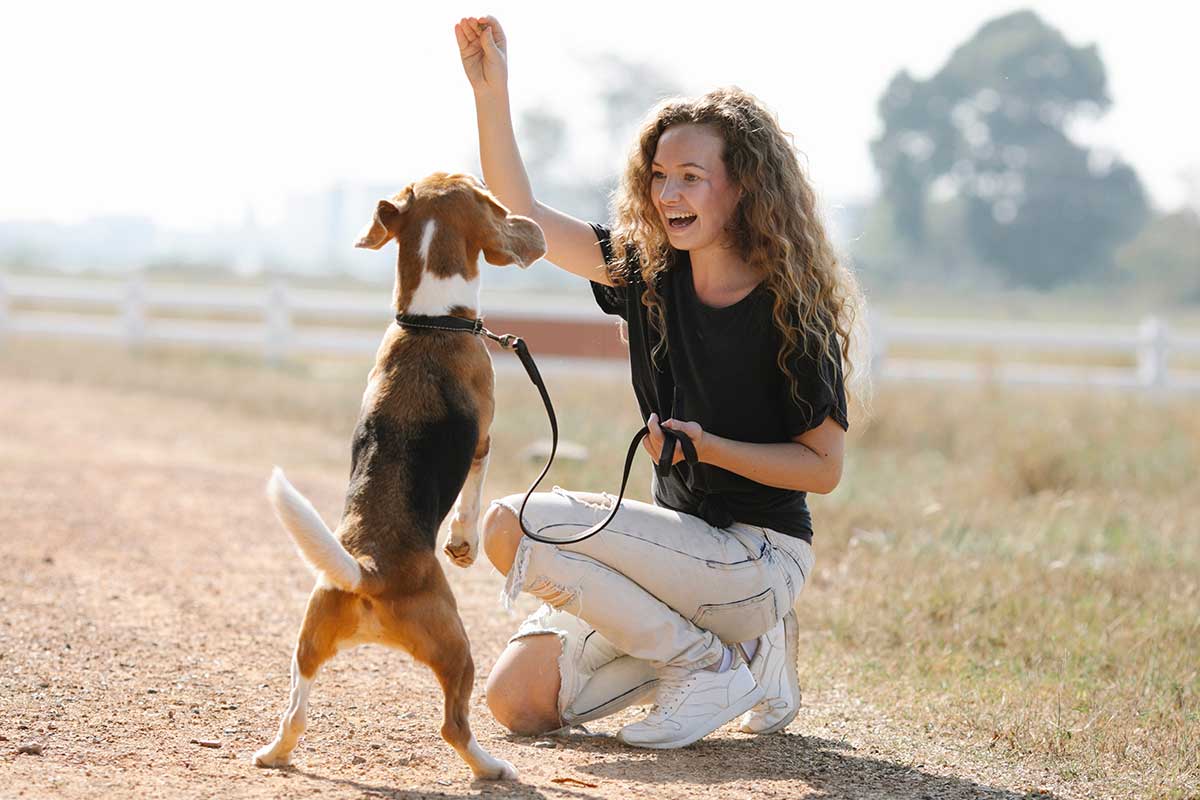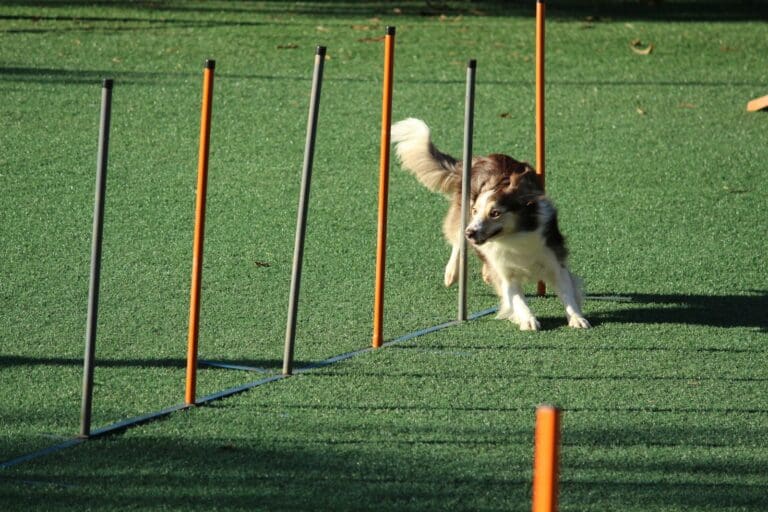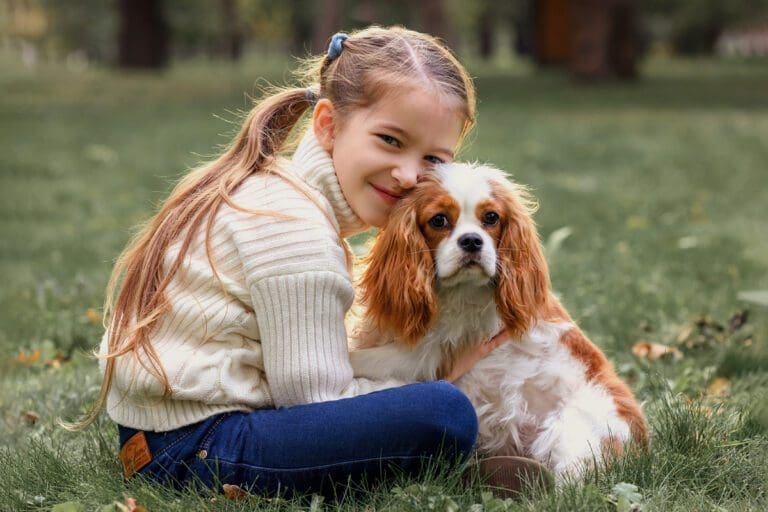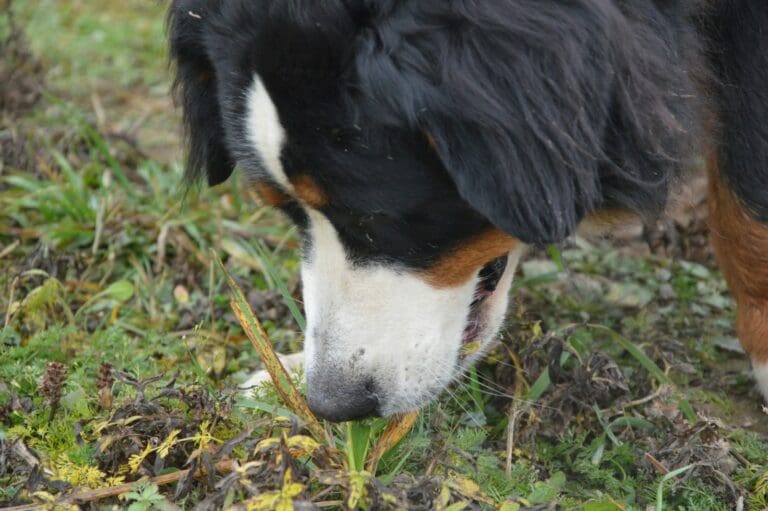We’ve all heard the saying: “You can’t teach an old dog new tricks.” Thankfully, that’s simply not true (in the literal sense, anyway), and we’re here to prove it.
In this article, we’ll show you 7 simple tactics for training your older pup. By following these guidelines, you’ll be able to ease your dog out of its usual habits and into some new ones. So whether you’re training your older dog to do simple tricks or trying to manage some unruly behavior, this guide will help.
1. Start Small
This is crucial. When teaching an older dog tricks, it is important to start small and work your way up.
Depending on what your older dog already knows, begin with basic commands such as “sit” or “down” and then gradually add more complex tricks as the dog becomes more comfortable with them.
It is also important to keep training sessions short and fun so that the dog does not become overwhelmed or bored.
2. Use Positive Reinforcement
This should be obvious to anyone who has ever owned a dog, but it is worth repeating: Positive reinforcement is a great way to motivate an older dog to learn new tricks.
When the dog successfully completes a trick, provide them with verbal praise, treats, or other rewards to let them know that they did a good job. This will help reinforce the desired behavior and make it easier for the dog to remember what you are trying to teach them.
Overall, praise is one of the most important things you can do for your dog to reward any kind of good behavior, whether you’re actively training them or not.
3. Break Tricks Down into Steps
When teaching an older dog a new trick, it can be helpful to break it down into smaller steps.
For example, if you are teaching your dog how to roll over, start by having them lie down and then progress from there until they have mastered the entire trick. This will help make the process less overwhelming for both you and your pup!
It’s important to try to understand your dog’s limits. Just like people, dogs are individuals with their own personalities and capabilities. Try not to push too hard to teach your dog a complex trick… it will just lead to frustration and one very unhappy pup.
4. Keep Training Sessions Consistent
This may be the toughest part of training for dog owners. Life gets busy, and it can be easy to fall into your own bad habit of only training with your dog when you “think of it.”
Consistency is key, and you’ll need to be prepared to change some of your own habits to make space for this new training routine. It’s only fair, after all, to be willing to put in just as much work into training as you expect your dog to put in.
So make sure that you set aside time each day to practice with your pup so that they can become accustomed to the routine and understand what is expected of them in each session. This will also help ensure that your dog remembers what they have learned in between training sessions!
5. Be Patient
Puppies tend to be more eager and impressionable. Older dogs may be more set in their existing routines and habits. Being patient while training an older dog is incredibly important.
In fact, if you think you will struggle with your patience level, then we’d suggest seeking professional training help. Never take your frustration out on your dog. Remind yourself that you’re dealing with the equivalent of a human toddler.
Remember that every pup learns at its own pace, and be willing to adjust your expectations accordingly. But with patience and consistency, you should eventually see positive results!
6. Practice Makes Perfect
In order for an older dog to master a trick, practice makes perfect! Don’t try to teach your older dog a laundry list of tricks all at once. Remember the patience tip? That also means you should allow ample time for your dog to learn and practice.
In a nutshell, make sure that you spend enough time going over each step of a trick until your pup has completely mastered it before moving on to something else.
Once they have mastered one trick, reward them with lots of praise before introducing another one!
7. Have Fun!
Above all else, make sure that you are having fun while teaching your pup new tricks! Dogs are naturally curious creatures who love learning new things – take advantage of this by making training sessions enjoyable for both of you! With enough patience and dedication, even an old pup can learn new tricks in no time at all!
Read More: 7 Simple Tricks Anyone Can Teach Their Dog






